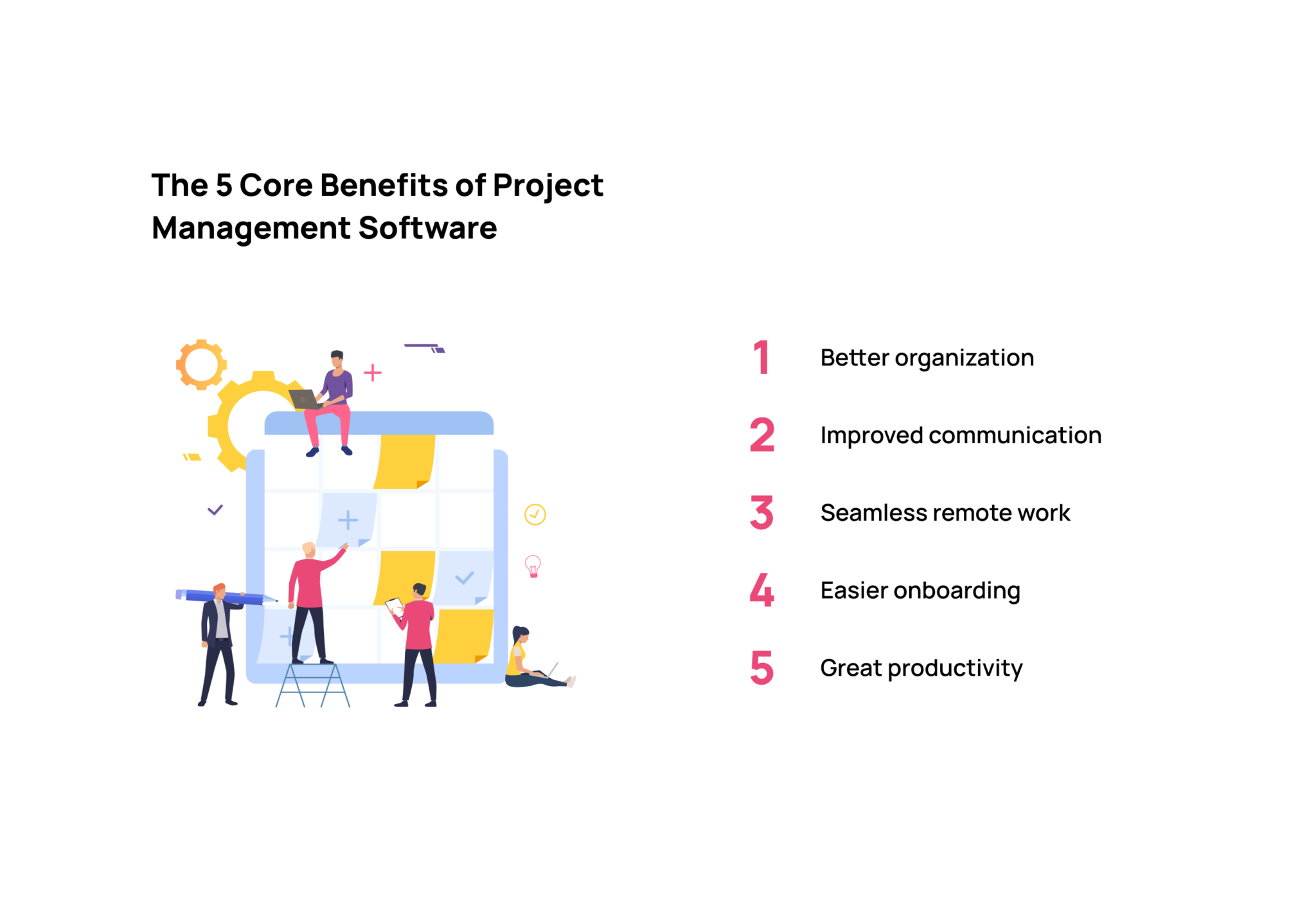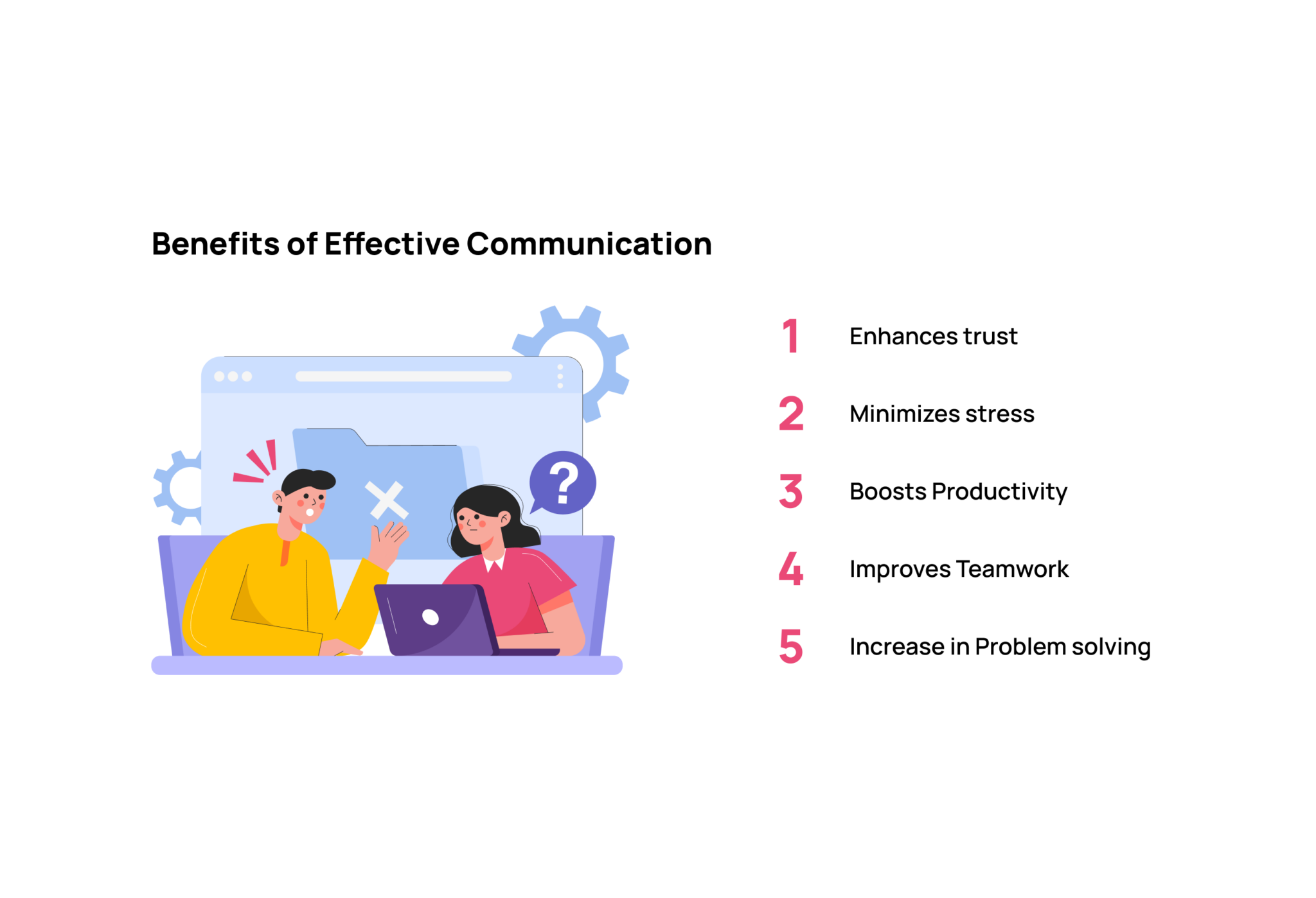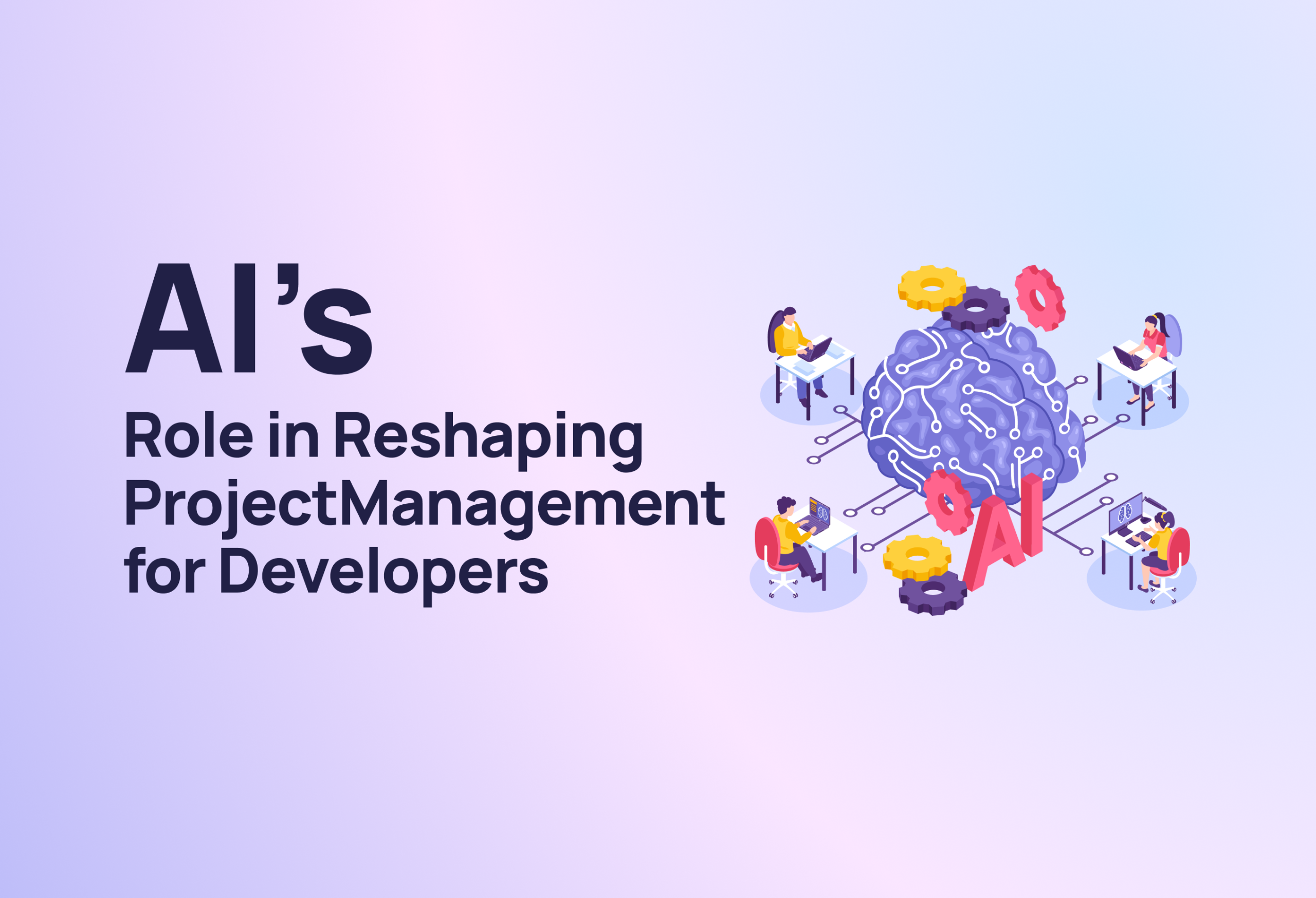What’s AI’s role in reshaping project management for developers.? To guarantee success in ever-changing software environments, AI-driven evolution is reshaping developer roles in project management. Due to ineffective cross-functional collaboration and antiquated project management methods, less than a third of software development projects (31%) succeed. Misalignment, expanding project scope, and unforeseen technological obstacles are all consequences of these problems, and they reduce productivity and cut profits. As the business landscape changes and becomes more competitive, organizations need to expect better success rates.
Further developments in project management software
Software companies can’t underestimate the importance of AI’s role in reshaping project management. Project management software has advanced greatly in recent years, which is great news since it improves visibility across teams. This allows for better collaboration and increases productivity across the software development life cycle. Software development teams have no justification for giving up their competitive advantage, nor is there a reason why their projects must fail.
Rather, teams working on development should learn to use new project management technologies effectively and realize how they may shorten and improve development cycles. Everyone’s job and the company’s future are on the line.
Outdated methods of project management cannot keep up
For project management, many software development teams still rely on Excel spreadsheets, outdated processes, and a mixed bag of technologies. Although these older systems may handle simple tasks like monitoring progress, they lack the flexibility and visibility required for more involved software development life cycles.
Imagine a group of developers managing a project using an Excel spreadsheet. For simple, elementary activities like making a list and assigning due dates, a spreadsheet is enough. Even so, the team will need to manually revise their spreadsheets to account for the project’s changing scope and timetable. This reduces the transparency of the project and is also tedious and time-consuming.
Moreover, in order to boost team effectiveness and productivity, obsolete and incompatible project management systems need to provide the necessary insights. Teams struggle to overcome obstacles and lessen the impact of problems in the absence of practical insights and data-driven decision-making. Below is a list of additional issues that can arise:
- Missed deadlines
- Misalignment between goals and outcomes
- Budget overruns
- Ineffective resource allocation
- Quality issues
The lack of effective channels for communication
When it comes to the research and development stages, many development teams also don’t have a good way to communicate and work together, which leads to information silos.

Inadequate communication between teams may lead to confusion regarding the project’s goals and objectives. It’s when the research team finishes collecting data on user demands and other important information, and the development team begins constructing the software. Consequently, they risk squandering time developing capabilities that fall short of what consumers and researchers anticipate. Nobody likes this situation since it is inefficient. Uncertainty about progress toward objectives was a contributing factor for 29% of developers who reported burnout.
When development teams fail to meet deadlines while staying under budget, they jeopardize their competitive advantage. But new project management software is opening the door to better teamwork and more productivity.
The evolution of project management software
Project management software has seen a dramatic evolution over the last decade to meet the needs of today’s collaborative and ever-changing work settings.
Numerous software solutions for project management make it possible for teams who are not involved in development to participate more actively in projects. These teams include those responsible for research and product management. The best options allow teams from different departments to work together, including online and mixed workers. They also help everyone agree on the project’s goals, give more information about how they’re doing, and speed up the timeline.

In the last few years, AI has become an integral part of project management software, and its influence is only expanding. From 2023–2028, analysts predict a 17.3% compound annual growth rate (CAGR) for the worldwide market for AI in project management.
An example of AI’s transformative potential in software development project management is its ability to:
- Automate repetitive tasks through workflow automation
- Create management process templates
- Summarize documents
- Power predictive analytics to help people make better decisions and use their resources more efficiently.
For project managers, these innovations are a boon. Where do developers stand in relation to these changes?
The Developer’s Changing Role: Three Emerging Trends
You should expect a shift in your responsibilities as a developer to accompany the growing importance of artificial intelligence (AI) in project management and the ability of software companies to facilitate better teamwork. Staying ahead of the curve and having the necessary abilities requires an understanding of these trends.
In your capacity as a developer, you may need to adjust to the following three ways in which project management software may affect your work:
1. Prior project participation
A more simplified R&D management approach is becoming available on many project management systems, which may help close data gaps between the research and software development processes. You may interact with projects early on with user input, project requirements, sprint planning, and other centralized responsibilities. And this helps you connect clearly with project objectives.
Additionally, with the help of modern project management solutions, you can become more involved in the R&D process, which opens up chances to get early feedback on concepts and learn about consumer demands in detail. To ensure you make a significant impact right away, think about enrolling in an online research course or forming a research partnership to learn from your peers.
2. Enhanced cooperation across different departments
When you become involved with a project early on, you’re more likely to collaborate with your colleagues in product management, research and development, and marketing. While people skills are valuable in any field, the ability to communicate effectively is critical when working with people from other teams.
A wide range of stakeholders, some of whom may lack technical expertise, must be able to understand and interact with you. Empathy, patience, and the ability to put oneself in another person’s shoes are essential, in addition to strong communication abilities. Think about your soft skills and see if you can get any comments from bosses or coworkers on where you can make improvements.

3. Improvements in allocating resources
By using project data, AI-powered systems may better match skill sets and responsibilities, in addition to automating repetitive operations and processes. You may greatly shorten your team’s development life cycles by letting AI handle repetitive activities and letting each team member focus on projects that are a good fit for their talents.
You may now devote more time and energy to addressing problems creatively, innovatively, and efficiently. The key to making the most of this change is to focus on what you do well and take pleasure in. Find the areas where your interests and abilities are well-suited, whether it’s developing algorithms or designing new product features.
Maintaining Flexibility in a Rapidly Changing Field
No developer can predict with any degree of certainty how new project management tools will affect their work. Positive trends that enable you to build new solutions include more time for innovation, earlier engagement in development life cycles, and more cross-team cooperation in your function.
Say you’re willing to roll with the punches, have an open mind, and are eager to learn and grow with these changes. Then you’ll be well-positioned to lead your projects, your company, and yourself to victory in the ever-changing world of software development.

